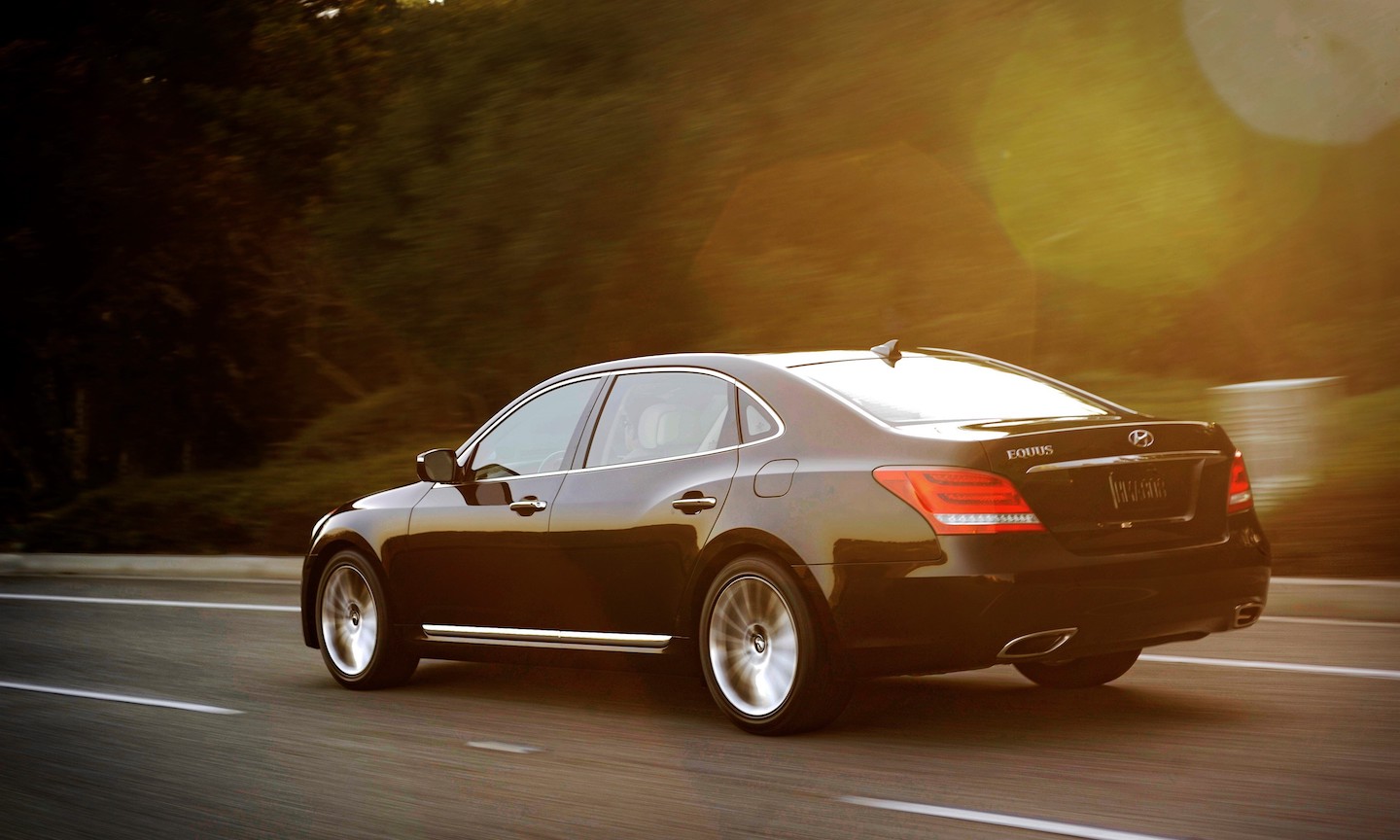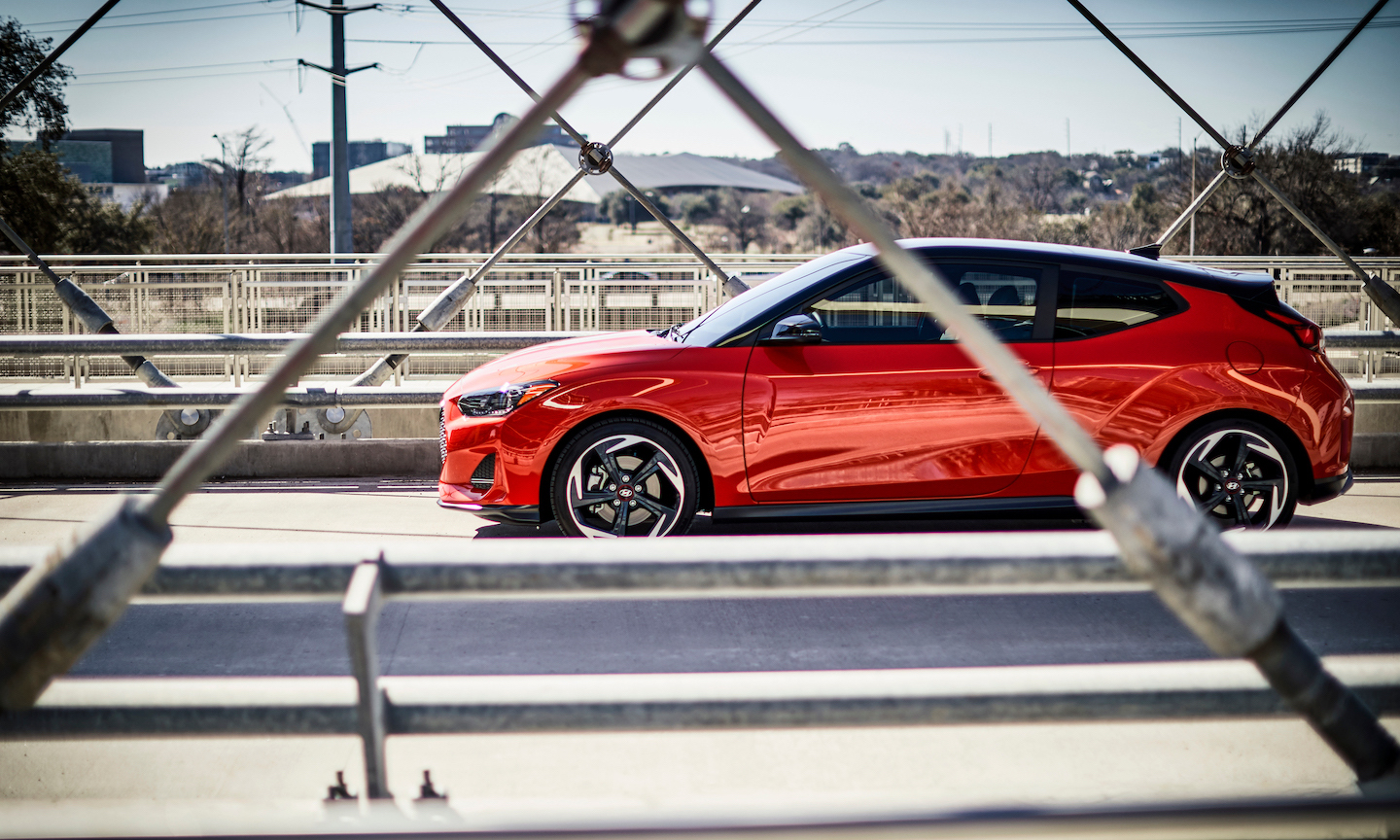How Hyundai Shaped the Automotive Industry

The history of Hyundai in the automotive industry is rich with innovation, evolution, and motorsports. From its first model to modern-day achievements, the automaker has always been at the forefront of the car-making world. This innovation has provided the groundwork for modern features, technology, and design aesthetics. Hyundai has pushed the envelope, forcing the competition to follow suit, and as a result, has left a mark on the automotive world.
By identifying needs and predicting trends, Hyundai has always stayed ahead, inviting other manufacturers to try and keep up. The result: a company built on hunting down success and invention. This automaker has never just made cars that are more advanced, it's also built machines that are crafted around the driving experience. With its fair share of roots in the motorsport world, Hyundai understands what it takes to make a vehicle perform well, under any conditions.

Every Great Super Hero Has an Origin Story
The emergence of Hyundai onto the world automotive scene reads like the career of a chart-topping solo artist. In the 1960s and 70s, the company rose to success relatively quickly in the South Korean market with the help of other well-known automotive legends, such as infrastructure guidance from the Ford Motor Company, engineering and design from veterans of the British Leyland Motor Corporation (known for brands like Jaguar and Land Rover), style direction from ItalDesign, and powertrain technology from Japan's Mitsubishi Motors. With the help of these legends, Hyundai created models that sold well domestically in South Korea as well as abroad.
In 1975, Hyundai produced one of the first of these, the Pony, the nation’s first original model, designed and constructed entirely in South Korea. After the Pony’s huge success at home, Hyundai began exports to clients as far as Central America and Northern Europe. Finally, the Pony made its way to the North American market in Canada in 1984, but it couldn’t pass the new rigorous emissions standards recently implemented in the US. The Pony was a huge success in Canada, topping that country’s auto sales charts, and leading to Hyundai producing its one-millionth vehicle by 1985.
Hyundai first showed up in the States with the Excel in 1986. This compact and efficient model received incredible praise from the media. Thanks mainly to its affordability, the Excel was awarded Fortune magazine’s “Best Product #10,” and Hyundai established itself as a well-known brand in the US. A couple of years later, the Sonata arrived, bringing with it more reasons for the American public to trust the name Hyundai.

In response to some quality issues in the late 80s, the brand undertook massive changes to manufacturing procedures and public relations strategies. Hyundai leadership decided to invest more in the quality, design, manufacturing, and long-term research of its vehicles and the company added a 10-year or 100,000-mile warranty to cars sold in the US. Since then, the brand has won numerous awards for quality, including high rankings in JD Power’s Initial Quality Survey, and Hyundai has been named one of the “World's Most Admired Companies” by CNN.
From the Track to the Street
Like many serious automakers, Hyundai maintains a presence in the world of motorsport, mainly to vet new engineering and technology, but also for the glory of the win. This career in racing began in the late 90s when Hyundai entered into the F2 class of the World Rally Championship. The team debuted a World Rally Car based on the Hyundai Accent and placed in their first top ten at the 2000 Swedish Rally. The team would take the Accent WRC on to many more top-placing races over the following years, but eventually, withdraw from the World Rally Championship for re-tuning. However, Hyundai would return for more victories in 2014 with a rally-version of its sub-compact i20.

The name Hyundai means “modernity” in Korean, so it’s not surprising that the brand’s forward focus is on efficiency and luxury. Even since its early arrival in the US market in the late 80s and early 90s, Hyundai has been a pioneer in clean energy vehicles, starting with the Scoupe flex-fuel vehicle and an all-electric version of the Sonata. Today, Hyundai continues to blaze trails with electric vehicles, still offering a hybrid version of the Sonata, as well as hybrid and all-electric versions of the Ioniq sedan.
Hyundai has also added a new direction to its brand with the birth of an all-luxury marque: Genesis. This new stand-alone luxury brand will focus on top-tier technology, performance, and comfort. Plus, the brand will offer more personalization and bespoke design for customers.

Hyundai is still committed to changing the automotive industry, and it remains a leader in efficiency, performance, and luxury. Visit Heritage Hyundai Towson at 801 York Road, Towson, MD 21204 or contact our sales staff online today and let us show you how the rich history of Hyundai has helped this brand generate some of the best vehicles on the market today.
Image Credit: Hyundai
